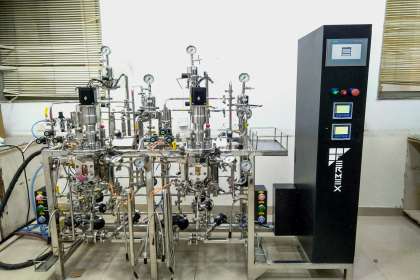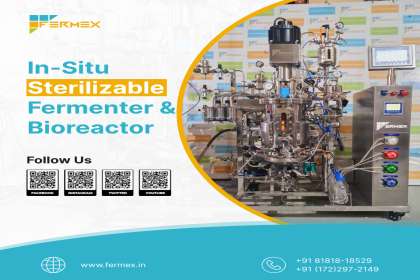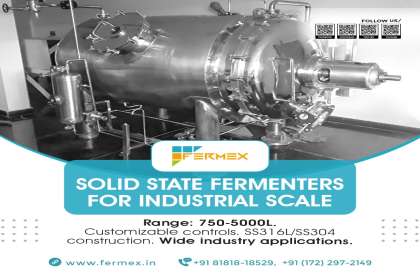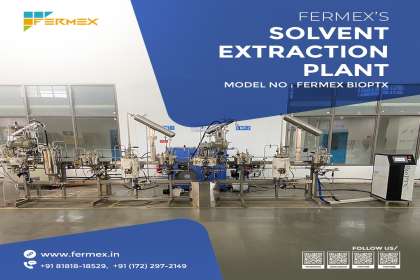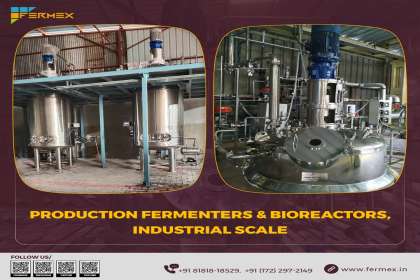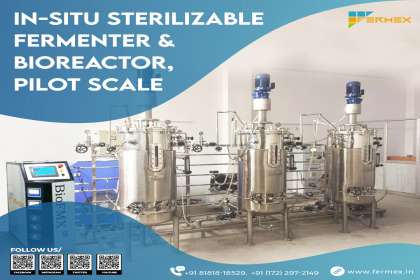Innovating Cheese Production: The Role of Fermenters and Bioreactors

Use Fermenters in Production of Cheese
Fermenters play a vital role in the production of cheese, contributing to its flavour, texture, and overall quality. In cheese production, fermenters are used to propagate and activate starter cultures, which are essential for the fermentation process. These cultures convert lactose in milk into lactic acid, leading to the acidification necessary for curd formation.
- Fermenters provide controlled conditions of temperature and pH, allowing the starter cultures to thrive and produce flavour compounds that give each cheese its distinct taste.
- Additionally, fermenters help enhance the texture of cheese by breaking down proteins and facilitating curd development. The use of fermenters ensures consistency and quality in cheese production, resulting in a wide range of delicious and diverse cheese varieties.
Key Stages involved in Process of making Cheese using Fermenters
The process of making wine and alcohol involves several key stages. Here are the common stages involved in the production of both wine and alcohol:
- Milk Selection and Standardization:Similar to the traditional cheese-making process, the first stage involves selecting high-quality milk and standardizing its fat and protein content if necessary.
- Inoculation: Instead of directly adding starter cultures or coagulating agents, the milk is inoculated with specific strains of lactic acid bacteria or other microorganisms. These cultures are added to initiate controlled fermentation in the milk.
- Fermentation: The fermenter provides a controlled environment, including temperature and pH regulation, to allow the starter cultures to ferment the milk. During fermentation, the bacteria consume lactose in the milk, producing lactic acid, which contributes to acidification and curd formation.
- Coagulation and Curd Formation: The controlled fermentation process triggers coagulation, leading to the formation of curds. The curds are formed as a result of the acidification and enzymatic activity initiated by the starter cultures.
- Cutting, Heating, and Stirring:The curds are cut into smaller pieces and gently heated to expel additional whey. Stirring helps control moisture content, size, and consistency of the curds.
- Draining, Pressing, and Salting: The whey is drained off, and the curds are pressed to remove more whey and shape them. The formed cheese may be salted to enhance flavour and preservation.
- Ripening and Aging: After pressing, the cheese is transferred to a suitable environment for ripening and aging. The controlled fermentation in the fermenter contributes to the development of specific Flavors, textures, and aromas during this stage.
- Packaging: Once the desired ripeness and flavour profile are achieved, the cheese is packaged to preserve freshness and prevent spoilage.


Fermex Solutions LLP Manufactures Fermenters that can be used for these Production
- Glass Autoclavable Fermenter (Lab scale)
- In situ Solid State Fermenter (Industrial scale)
- In situ Solid State Fermenter (Pilot scale)
- In situ Submerged Fermenter (Industrial scale)
- In situ Submerged Fermenter (Pilot scale)
Benefits of Fermenters in the Production of Cheese
Fermenters offer several benefits in the production of cheese, particularly in processes that involve controlled fermentation. Here are the key advantages of using fermenters:
- Controlled Fermentation:Fermenters provide precise control over the fermentation process by regulating temperature, pH, and other environmental factors. This control ensures consistent and optimal conditions for the growth and activity of starter cultures or specific microorganisms, resulting in predictable and desired outcomes in terms of flavor, texture, and quality.
- Enhanced Flavor Development: Fermenters contribute to the development of unique and complex flavors in cheese. Controlled fermentation allows the starter cultures or selected microorganisms to produce flavor compounds, resulting in a broad range of flavors, from mild to sharp or pungent, depending on the cheese variety.
- Texture and Consistency:The use of fermenters helps achieve consistent and desired textures in cheese. Controlled fermentation affects the breakdown of proteins, curd formation, and moisture content, leading to specific textures such as soft, semi-soft, or hard, according to the intended cheese type.
- Product Uniformity: Fermenters aid in producing cheese with consistent quality and characteristics. The controlled fermentation process ensures that each batch of cheese exhibits similar qualities, contributing to brand identity and customer satisfaction.
- Customization and Innovation: Fermenters provide flexibility for experimentation and innovation in cheese production. Different starter cultures or specific microorganisms can be employed in the fermenter to explore new flavors, textures, and varieties of cheese, allowing cheesemakers to cater to diverse consumer preferences.
- Improved Efficiency and Production Control: Fermenters enable more efficient cheese production by providing a controlled and optimized environment. This control reduces the risk of spoilage or inconsistent results, optimizing production processes and reducing waste.
- Shelf-Life and Food Safety: Controlled fermentation in fermenters contributes to the production of cheese with extended shelf life. The controlled conditions inhibit the growth of harmful bacteria and ensure the safety and quality of the final product.









